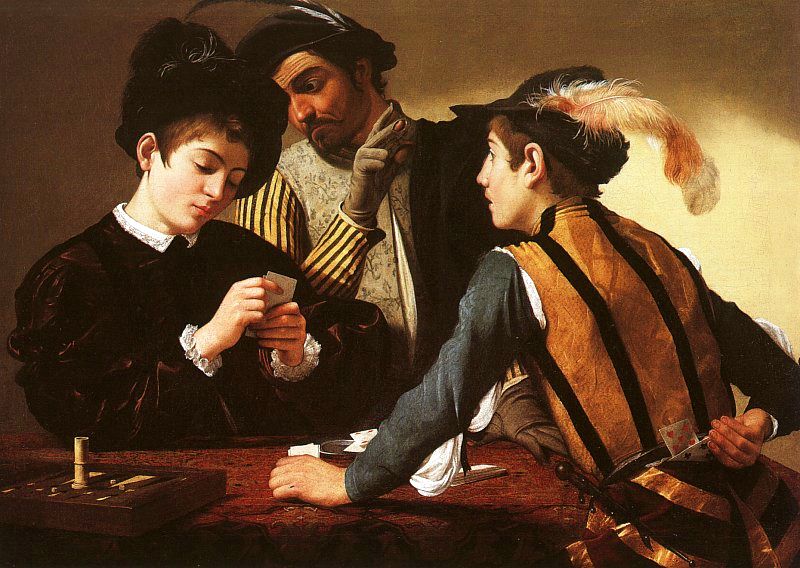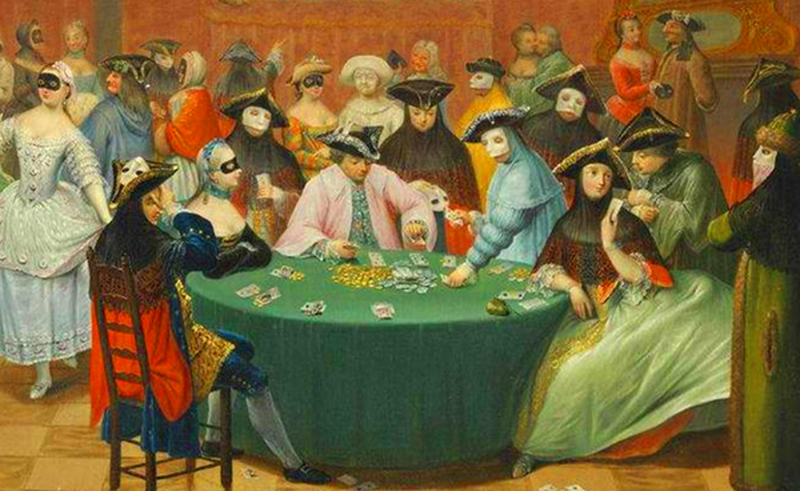14 Dec
(Photo: BBC.co.uk)
It’s always satisfying to find you have a shared obsession with one of your heroes, especially one as removed in history as Dostoevsky is. Not that time matters much in the gambling world, since the casting of lots for Jonah’s long walk off a short plank, the degenerates of all eras are instantly recognizable to one another. And Fyodor Mikhailovich Dostoevsky was definitely part of the clan.
In The Gambler, Dostoevsky’s portrait of a young tutor who is converted to degeneracy during a holiday in a town named – perhaps somewhat on the nose – Roulettenberg.
The story of the novella is narrated a young tutor who is obsessed with his student and in constant conflict with her father the General. They are all on holiday at the Casino in the fictitious Roulettenburg, looking to improve their fortunes, some by marriage, some by chance.
When his student demand that he “take this seven hundred florins, go and play roulette, and win me as much as ever you can,” the narrator sets off to the table and to his doom.
“I had a commission from her – to win at roulette at all cost.”
By the end of the novel the narrator is a wreck, driven by nothing but hope he lives “in a constant quiver of anxiety, play for the smallest possible sums, wait for something to happen, make calculations, stand all day near the roulette table and watch the play, even dream of it at night.”
In this world justice looks like unhappy marriages and the destitution of a railbird looking for his next stake.

Grim Humor
The overall tone of the novella is one of sordidness, which comes from the comedy of manners, that Dostoevsky excels in.
Funny, just as often as he is depressing, Dostoevsky’s more preening characters spend an inordinate amount of time wracked by self-consciousness. In this story that is driven by an awareness of the distinction between vulgar gambling for money and the kind a gentleman can engage in, where the money doesn’t matter.
Naturally, the narrator ignores the fact that his only reason for being there is the acquisition of money. His boss is there to secure his inheritance, lest his Grandmother squander it. Which she does, spectacularly, at the very tables her Grandson led her to in a scene that is thick with the kind of first hand details you’d expect from an author who frequently found himself wiring home to say he’d blown his bankroll at some seaside resort’s roulette wheel.
Which leads me nicely into…
The Gambler On Gambling
Dostoevsky was not a good gambler. In fact he had to write the gambler in a ridiculously short period of time, in order to cover his many debts.
Dostoevsky and his narrator both believe in ‘not a system’ but a predictable sequence of the wheel, and a strange belief that keeping one’s head was all it took to win at roulette. These sort of fallacies make painful reading in a world driven by $EV, but is an interesting look at the lower orders in the fish/shark ecosystem of the baize.
The novella is dripping with the kind of detail that one assumes are somewhat autobiographical, and is an interesting look at gambling in the mid-1800s and as a portrait of a degenerate, it still stands up today.

In Short
An good story with a great first half, and a slightly plodding second act. Overall though, worth a read, if only for the historical and psychological insights.
